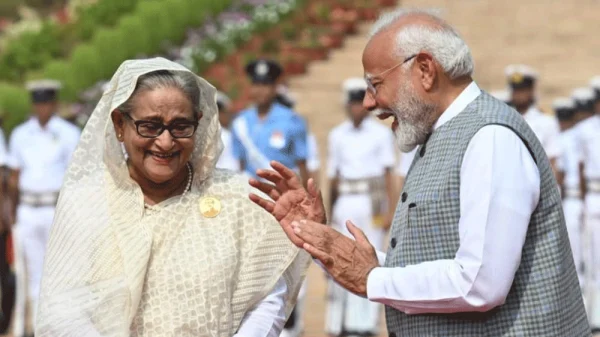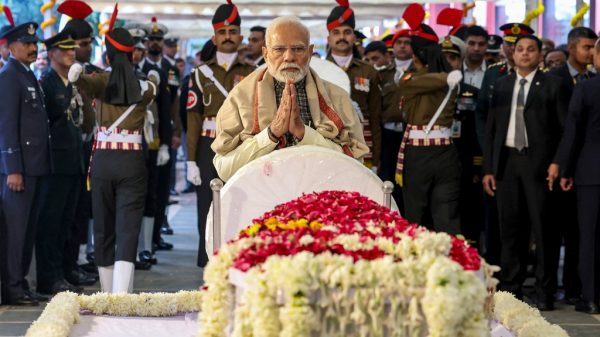UK U-turn as govt confirms facemask order

Shawdesh desk:
Facemasks will become compulsory in shops and supermarkets in England from next week, Health Secretary Matt Hancock said on Tuesday, marking a U-turn on previous policy.
The new legislation will come into force in England on July 24, Hancock told parliament after weeks of wrangling from ministers about their effectiveness.
“We want to give people more confidence to shop safely and enhance protections for those who work in shops,” Hancock told MPs.
“Both of these can be done by the use of face coverings.”
The move brings England into line with Scotland, and several other European countries which are gradually reopening after lengthy periods locked down.
Prime Minister Boris Johnson, who spent several days battling COVID-19 in intensive care, said the measure was “extra insurance” against the spread of the virus.
“I do think in shops it’s very important to wear a face covering if you’re going to be in a confined space to protect other people, and receive protection,” he said Monday.
People who fail to cover their face risk a fine of up to £100 ($123, 109 euros), with enforcement to be carried out by the police.
The government has been under pressure for weeks to give clear guidance about the use of facemasks in shops, as many re-open after more than three months of lockdown restrictions.
Johnson’s senior cabinet colleague, Michael Gove, on Sunday appeared to rule it out, saying ministers instead trusted people’s “good sense”.
Facemasks have been mandatory on public transport across the country since June 15, and Scotland has already made the coverings compulsory for shoppers.
UK Environment Secretary George Eustice earlier said Tuesday the government was changing its advice in accordance with developments in scientific thinking.
But there are already concerns from the police who have called it “nigh on unenforceable”, with calls for shops themselves to take on the job.
“They can quite easily put signs up on their doors ‘No mask on, no entry, this is private property’,” said Ken Marsh, of the Metropolitan Police Federation representing officers.
The main opposition Labour party accused the government of “days of ministerial muddle” and a “shambles” on the issue and asked why the policy was coming into effect in 11 days.
Medical experts back the change in approach. David Strain, from the British Medical Association, said it would help slow the spread of the virus.
“There is clear evidence that a cloth face covering will reduce up to 84 percent of droplet spread, the main source of transmission of COVID,” he said.
Hancock also said it was designed to protect shopworkers, as the death rate among those in retail was higher than in the general population.
Public opinion was split between those in favour and those against, particularly online, where #NoMasks trended on Twitter.
But many social media users were responding to those opposed, after a similar campaign in the United States.
On the streets of London, some members of the public said the new rule would provide reassurance and protection but expressed concern about enforcement.
The threat of a fine is “the only time that people will listen”, one passer-by told AFP.
“It’s about time,” said another. “We’re probably two to three weeks behind in doing it.”
Britain has been one of the countries worst hit by the virus, with nearly 45,000 deaths from positive coronavirus cases, according to an official government tally.
Broader statistics taking into account suspected cases puts the death toll at more than 50,000.
The government was also warned on Tuesday that a second wave of infections could see 120,000 deaths in hospitals alone in a “reasonable worst-case scenario” if no action was taken now.
The Academy of Medical Sciences said the government needed to prepare immediately to prevent the state-run National Health Service (NHS) from being overwhelmed from September.























Leave a Reply